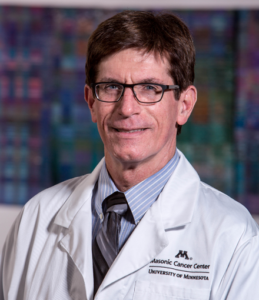When Laurie Strongin’s son Henry was born with the rare, often fatal disease of Fanconi anemia, doctors told her that the best way to save his life was with an umbilical cord blood transplant from a genetically matched sibling. But Henry had no matching siblings. Laurie and her husband then got a call from a doctor with a novel idea of combining three technologies to create a child who was guaranteed to be a genetic match, raising the question: is it ethical to create a life in order to save another?
- Episode 1: I Would’ve Let You Die, Too
- Episode 2: The Girl Who Died Twice
- Episode 3: Need a New Liver? Drinkers to the Back of the Line
- Episode 4: Why Can’t I Buy A Kidney?
- Episode 5: A Womb of One’s Own?
- Episode 6: Creating One Life to Save Another
- Episode 7: An Off Switch for Depression?
- Episode 8: Miracle Drugs, Million Dollar Price Tags
- Episode 9: The Future of Baby-Making
- Prequel: The God Squad
- playing god? In the Classroom
Episode 6: Creating One Life to Save Another

Laurie Strongin
CEO & Founder
Hope for Henry Foundation
Laurie Strongin is founder and CEO of Hope for Henry Foundation, which is reinventing the pediatric patient experience and improving outcomes in hospitals nationwide. Laurie’s work with Hope for Henry and her memoir, “Saving Henry,” have placed her at the forefront of supporting patients’ rights and the responsible use of new medical technologies. Her activism has produced op-eds in national newspapers, appearances on television and radio, collaborations with Congressional leadership, and recognition from the White House. Laurie serves on the board of the National Marrow Donor Program.

Jeffrey Kahn
Andreas C. Dracopolous Director
Johns Hopkins Berman Institute of Bioethics

John E. Wagner, MD
Co-Leader of the Transplantation and Cellular Therapy Program
Professor in the Division of Transplant and Cell Therapy in the Department of Pediatrics
McKnight-Presidential Endowed Chair, Department of Pediatrics, Division of Pediatric Blood and Marrow Transplantation & Cellular Therapy
University of Minnesota
Additional Resources
You can learn more about Fanconi anemia, learn about the latest research, and find resources for those affected by the disease here. You can read more about the Strongin-Goldbergs’ and the Nashes’ stories in this New York Times article from 2001.
Laurie Strongin went on to found the Hope for Henry Foundation, which works with hospitals to help provide support and better care for pediatric patients.
The Greenwall Foundation seeks to make bioethics integral to decisions in health care, policy, and research. Learn more at greenwall.org.
Continue the Conversation
We want to hear your thoughts about this episode. Please share them using the form below and your comments could be posted on this page and made accessible to other listeners.